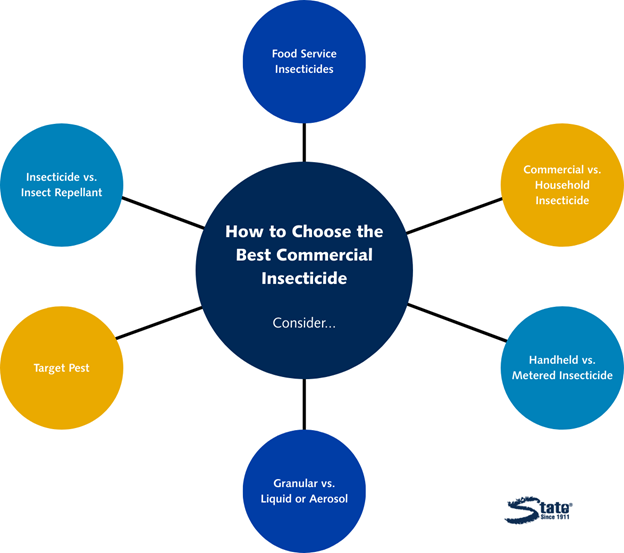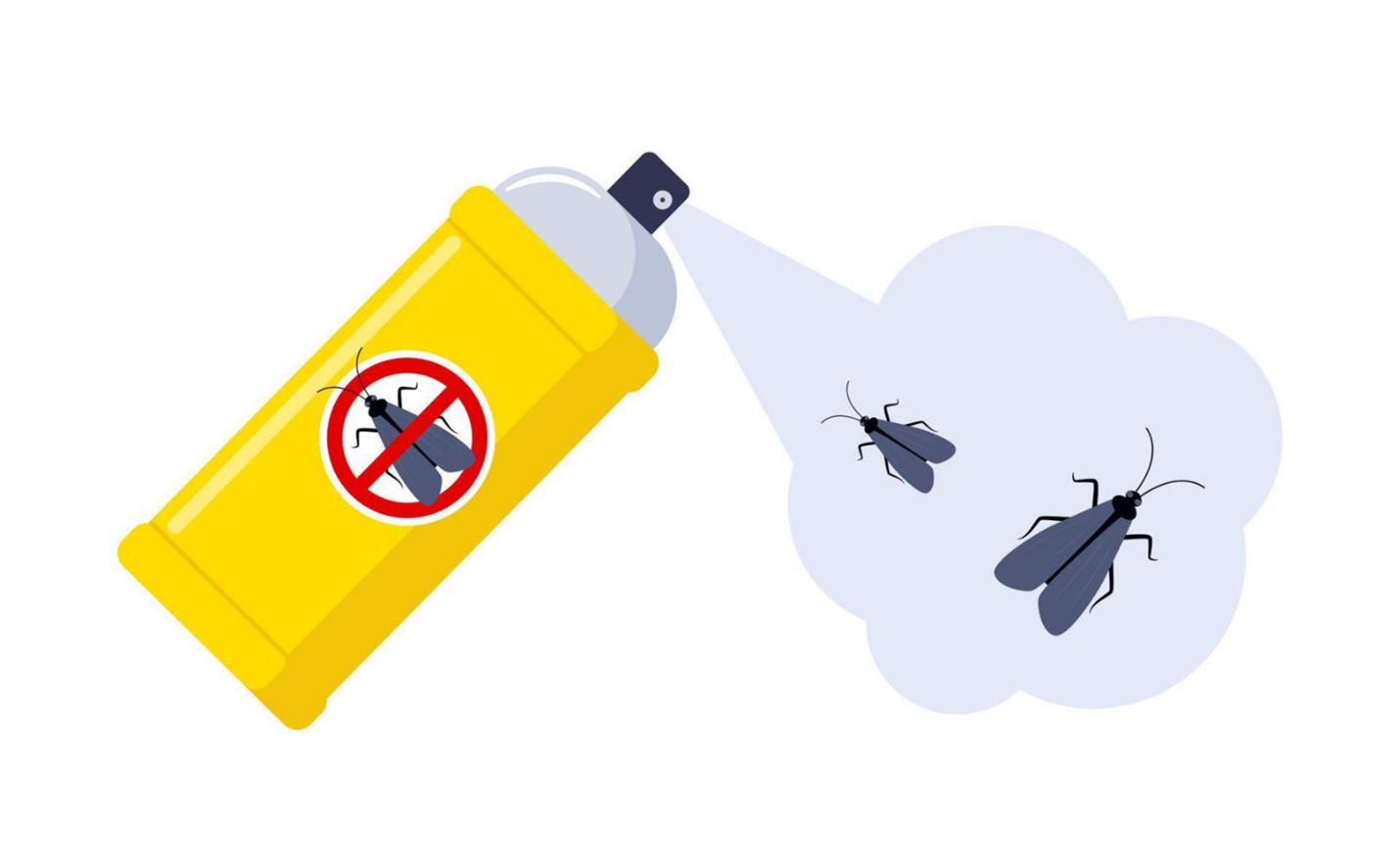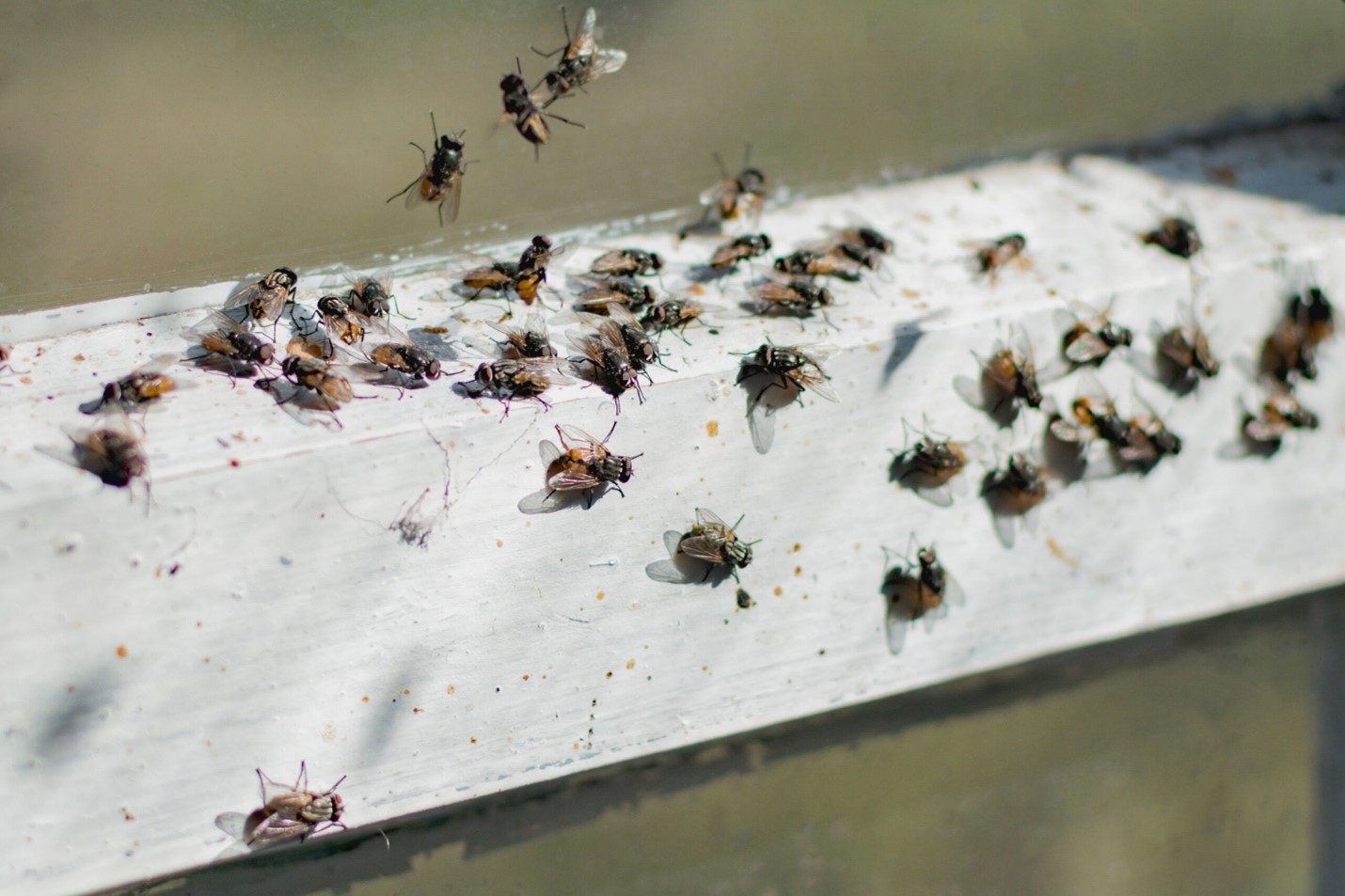
How to Choose the Best Commercial Insecticide for Your Facility
Picture this: you’re the property manager for an apartment complex. Constantly, no matter what you do, houseflies and gnats swarm the leasing office, silverfish shimmy across the laundry room floor, and roaches and ants invade individual units in droves. Complaints pile higher by the day, and you’ve tried insect traps to no avail; how do you eliminate bugs from your facility for good?
At State Chemical, we manufacture and distribute chemical and biological solutions for various applications, including insect control. When there are so many options to factor in, it can be hard to determine exactly which insecticide will work best for you.
To help you find the best insecticide for your needs, we will cover insecticides versus insect repellents, commercial versus household options, targeted insecticides, granular versus liquid options, handheld versus metered options, and food service insecticides. After reading, you’ll know which insecticides will be the most effective in your facility.

Commercial Insect Repellant vs. Commercial Insecticide
First, it’s important to establish whether you’re looking for an insect repellant or an insecticide.
An insect repellant is designed to deter insects from an area. For example, if you sprayed it on your clothes before going out to complete groundskeeping duties, you would prevent bug bites. Similarly, you could apply it to an area in your facility (e.g., an entryway) to temporarily deter insects from congregating. These are best used to stop insect bites or annoying interruptions, not to deal with an infestation.

Meanwhile, a true insecticide kills any insects it comes into contact with. For example, you could preventatively apply an insecticide to your baseboards to kill any roaches that might slip through—or if you see a roach, you could reactively spray it with an insecticide to kill it on sight. These are best used to handle insect infestations and other serious bug issues.
Insect repellants and insecticides each serve their role in keeping insects out of your facility. For short-term avoidance, insect repellants are the answer; for longer-term elimination, it’s best to continue exploring insecticides.
Commercial Insecticide vs. Household Insecticide
When it comes to insecticides (as well as many other chemical products), the distinction between commercial and household options will make a big difference as far as effectiveness goes. The following are the main points of distinction between the two:
Dilution Rate
While not always the case, household insecticides are usually diluted at a higher rate than commercial insecticides. This means there is a smaller percentage of active ingredients, and you will be paying for a larger percentage of water rather than solely for the actual chemical.

Meanwhile, with commercial insecticides, you will be paying for a more concentrated product. This way, you’re not paying for the pre-diluted product but for the pure chemical. For this reason, commercial insecticides are stronger than household options, and they last longer. After all, a bottle of 80% water and 20% chemical will require more sprays to neutralize a wasp nest than a bottle of 20% water and 80% chemical.
Product Strength
As a result of different dilution rates, household and commercial insecticides can also have considerably different product strengths.

Typically, the more diluted the product, the less powerful it is. In the case of household insecticides, this usually means more product must be used in order to have the same results as a commercial insecticide. With a lower percentage of active ingredients present, the household product simply isn’t strong enough to handle the problem in the same way and may require using more product overall.
Meanwhile, commercial insecticides are usually diluted at far lower rates. This means that there is a higher percentage of active ingredients present, so there is more product to go around and kill unwanted pests.
Long-Term Effectiveness
This also plays into product effectiveness. Over time, household insecticides will require more frequent reapplications. On the other hand, commercial insecticides offer longer lasting and more successful results.

It can be tempting to just buy from your local hardware store; and if your insect problem is mild, this may work fine. But if you’re dealing with a wider-spread or more severe issue, commercial insecticides will be more effective for a longer period of time.
How to Choose a Commercial Insecticide that Targets Your Problem Pest
When considering which insecticide to purchase, you’ll also want to ensure that you’re buying a product that targets your problem insect. To determine what to buy, start by identifying your problem pest.
Bees, Wasps, Hornets, and Other Flying Insects
Flying insects may include houseflies, gnats, mosquitoes, bees, wasps, hornets, and more. For these problems, you’ll first want to purchase an insecticide that specifically claims to kill flying insects. Then, apply it in places where flying insects frequently emerge from or land on (e.g., hard surfaces, cracks, crevices, etc.)

You can also use a blast spray to reactively kill flying insects after initially spotting them. This can especially be useful for cases where you may want to destroy a hive or nest, for example. With a more powerful blast spray, you can stay further back while you kill off the problem pest.
Whatever your specific application method, find an insecticide intended for flying insects, and you’ll be prepared to tackle your problem.
Roaches, Ants, and Other Crawling Insects
Crawling insects can include roaches, ants, termites, silverfish, centipedes, spiders (although they’re technically arachnids), and more. To deal with these types of bugs, you’ll, again, want to purchase an insecticide that specifically claims to eliminate these kinds of insects. From there, you’ll want to apply it to the source of the infestation or wherever else you notice the most crawly critters. This way, any bugs that walk through it will die.

As with flying insects, you can also reactively use a spray to kill a noticed pest directly. For either application method, ensure you purchase an insecticide targeted toward your problem insect, and your solution will be effective.
Broad-Spectrum Insects
If you have a broad spectrum of insects, this means you might be dealing with flying and crawling insects of all different species rather than a singular one. Rather than use multiple different insecticides, you can purchase an insecticide that targets a broad range of insects for the highest effectiveness.

As with the previous two options, you can apply an insecticide for broad-spectrum insects either preventatively around problem areas or directly on the pest(s) in question. Either method can be successful depending on your preference; the most important thing is making sure the correct problem insects are being targeted.
If you purchase the wrong type of insecticide for your intended target, it may not be effective. For example, if you were to use an ant killer on a beehive, it might not work very well. This is why it’s important to pay attention to the product label—if it kills a certain category of bug, it will specifically list it (as required by EPA regulations); it won’t work on a species if it doesn’t specifically mention it.
Commercial Granular vs. Liquid Insecticides
The next step is to consider your preferred method of product application. Generally, this means comparing granular insecticides and liquid or aerosol insecticides.
Granular Insecticide
A granular insecticide is a product that can be sprinkled around problem areas to kill unwanted bugs. Usually, granular options work by sticking to bugs that walk through them, cutting them open, and drying them out from the inside. Before they die, they also pass the granular around to other bugs, extending the range of impact.

Granular insecticides are good for preventative insect control targeted at an area (e.g., a window) rather than at roaming insects. In other words, if you want to kill a hornet flying through your lobby, throwing a granular insecticide at it probably isn’t the best application method.
Instead, granular options are great for preventatively treating a problem area. They stay in place without a need for frequent reapplication, and they effectively kill unwanted bugs.
Liquid or Aerosol Insecticide
Meanwhile, liquid and aerosol insecticides can be sprayed on a problem area or directly on pests depending on the product. This means they can preventatively kill bugs like granular products or reactively kill bugs as noticed.
For this reason, liquids and aerosols can be effective for both spot targeting and reactive approaches. However, if used for spot targeting, they may require more frequent reapplications than granular insecticides.
If you need a reactive product, liquids or aerosols are the way to go, and if you want a preventative approach, liquids or aerosols can benefit you similarly to granular options.
Handheld Insecticide vs. Metered Insecticide
Next, it’s time to consider whether you would benefit more from a traditional handheld insecticide or a metered insecticide.
Handheld Insecticide
A handheld insecticide is the standard option you’ll think of when considering bug killers. Handheld insecticides will come in cans, jars, or other containers so that they can be applied by hand.

These can be useful for spot-treating specific areas, for when your problem areas tend to change, and for situations where you’d prefer to manage insect control yourself. Handheld insecticides also come in a variety of options, so they can adapt to many different needs.
Metered Insecticide
On the other hand, metered insecticides are automated systems that dispense bug-killing chemicals at regular intervals. These systems can be situated on a hard surface (e.g., a shelf) or secured to the wall to treat the area.
It’s best to use metered insecticides in areas where insects are consistently present, such as trash collection areas.By applying product at a regular cadence, metered insecticides keep bugs under control without tedious reapplications from your staff. Metered insecticides are a hands-off yet effectual approach toward insect control when you don’t have the time to keep up with bugs via a handheld product.
Note that in order to be automated, the insecticide must be placed in the system cabinet. Once this is properly set up, it will act as an automated metered insecticide. Without the system, the product will require the applicator to be manually pressed each time.
When to Use a Food Service Insecticide
If you work in the food service industry, it may benefit you to explore food service insecticides. These products kill insects, but they leave no residue, which makes them safe for use in food-contact areas.
For example, let’s say that you manage a made-to-order sandwich shop, where flies constantly swarm the fresh bread and open ingredients. The constant presence of bugs is a turn-off to customers, but you have limited options for insect control in an area with open food. With a food service insecticide, you can get these flies under control without compromising the safety of your customers.
It’s important to note that food service insecticides are only safe in incidental contact scenarios. They cannot be sprayed directly onto food or surfaces where food is handled.
If you’re looking to eliminate insects in an area where food is commonly present, food service insecticides are right for you. If this isn’t a concern, you don’t need to look for products with this distinction.
Learn About State Chemical’s Commercial Insecticides
When it comes to insecticides, there are many different options, which can make it difficult to know what will perform best in your facility. Now that you know which features you need in your ideal insecticide, watch the video below to learn about State Chemical’s commercial insecticides.

















































